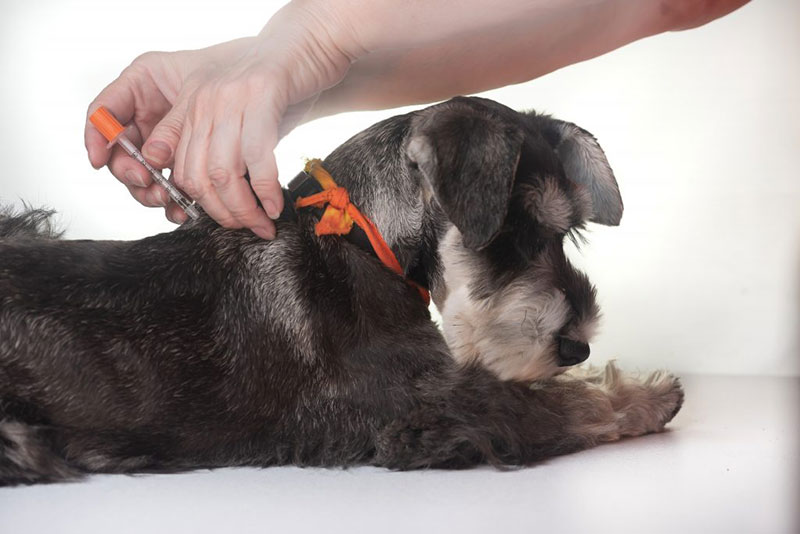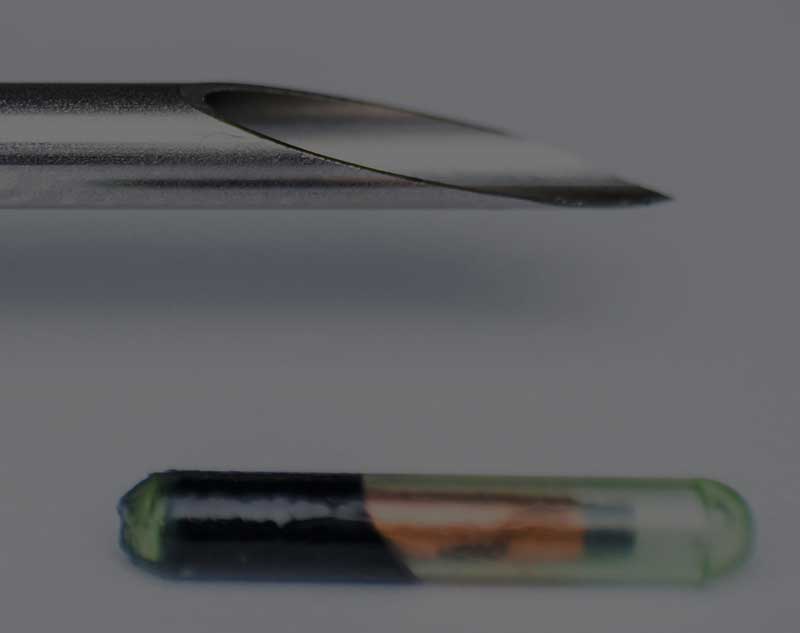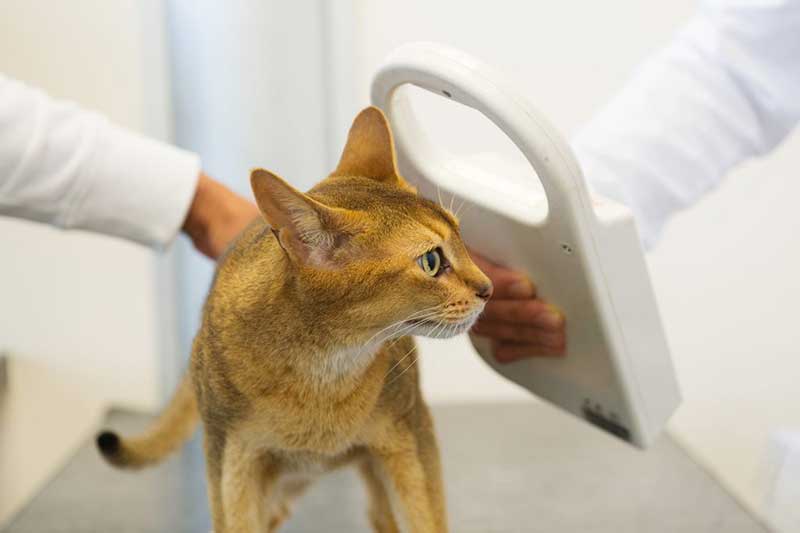
Microchipping
In the United States, over 10 million cats and dogs are lost or stolen annually. Of these lost pets, only 22% of dogs and 2% of cats without microchips are reunited with their families. We love our pets and do our best to keep them safe, but accidents and unforeseen events occur all the time. So, it’s best to give your pets the best chance at getting home safely.
What Are Pet Microchips?
A microchip is a form of permanent identification for cats and dogs. A microchip contains a small transponder housed inside a non-toxic, hypoallergenic, biocompatible capsule. It’s about the same size and shape as a grain of rice. Microchips have the ability to transmit radio waves that contain unique identifying numbers that can be read with a special scanner. A pet’s number is registered in a database along with your contact information.
If a lost dog or cat is turned into a veterinary clinic or animal shelter, they will be scanned for a microchip. Your contact information will be found in the database, and you’ll be notified of your pet’s location.


Adobe Veterinary Center Always Recommends Microchipping
Although they’re important and useful, pet ID tags should not be solely relied upon to ensure your pet is returned to you. Pets easily lose their tags and collars, making them unidentifiable.
Microchips have a proven track record. Statistics show that microchips significantly increase a pet owner’s odds of being reunited with their lost pets. More than 50% of microchipped dogs and 40% of microchipped cats find their way back to their owners. When pets with microchips aren’t returned to their owners, it’s most often due to the owner’s failure to update their contact information in the microchip database.
What to Expect During Your Pet’s Microchip Appointment
Getting a microchip is a quick, simple, and safe procedure. Microchips are placed between a pet’s shoulder blades, and like an injection, they are inserted using a needle. Your pet might experience a slight pinching sensation when the needle’s inserted, but the process is otherwise pain-free.
Our veterinarian will then provide you with information on your pet’s microchip and instructions for registering your information with your pet’s ID number. It’s essential that you complete this final step. Otherwise, your pet’s microchip is rendered ineffective.
For more information about microchips or to schedule an appointment for you pet, contact Adobe Veterinary Center today!








